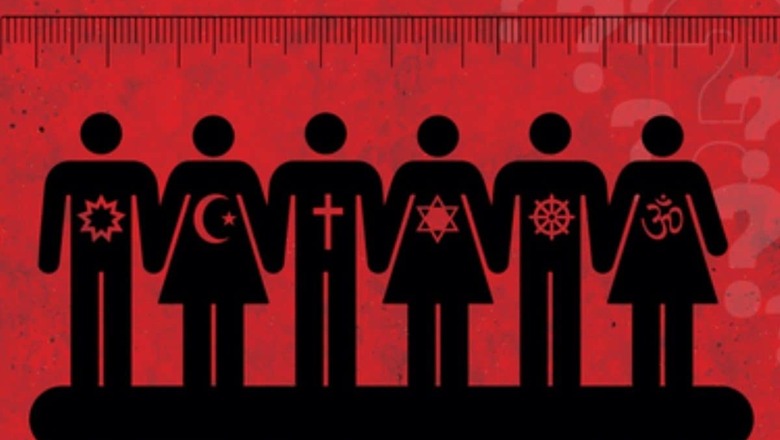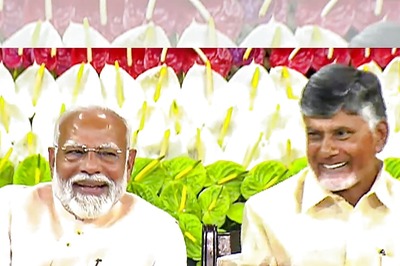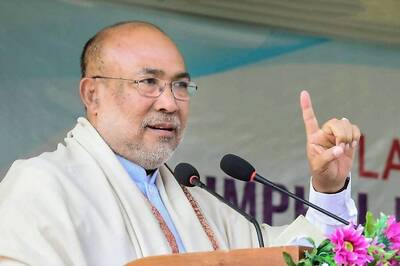
views
Amid the raging debate over the implementation of the Uniform Civil Code (UCC) in the country, the expert committee for a UCC in Uttarakhand is all set to submit its report, along with a draft of the proposed law, to the state government by the end of July. It is learnt that the Union government is expected to use it as a template for drafting its own UCC Bill and ruling party members hoping to take it up in the winter session of the Parliament.
This announcement has once again stirred up the debate about whether this one nation is to be governed by one law or a hybrid of personal laws drawn from the religious scriptures of the respective communities. The answer, despite being logically evident, surprisingly eludes even the best of minds, even the ones apparently committed to the ideas of “secularism” and “equality”.
The partition of India was an unprecedented tragedy that left millions massacred, and many more displaced and desolated. The reason behind this ordeal was that the Jinnah-led Muslim League demanded a separate nation-state for Muslims as they feared that an independent India would be dominated by Hindus. The piece of land amputated from India, wasted no time in implementing the Islamic law, trampling upon the rights of religious minorities and codifying that inequality in the law of the land.
What transpired in independent India “dominated” by Hindus is a different tale altogether. India decided to not have a state religion and since both Hindus and Muslims living in India were governed by personal laws, the next logical step would have been to mould the personal laws into a standardised code. A paranoid mind might have anticipated that a Hindu majority India would only intervene in the religious freedom of the Muslim minority by codifying the Islamic law and Hindus would still be governed by their personal laws. What happened was the exact opposite.
The Hindu personal law was abolished in favour of the Hindu Bill while the Muslim Personal Law remained untouched by this prospect of modernity. Jawaharlal Nehru believed that women’s empowerment should be the foundation stone of any civil society and hence, wanted to implement the Uniform Civil Code in the country. Dr B.R. Ambedkar, a vehement advocate of the UCC, saw it as an opportunity to reform Hindu society as well as to ensure the dignity of Muslim women who have little protection under Sharia Law. When Ambedkar proposed the UCC in the Constituent Assembly, he had to face staunch opposition from the Muslim leadership, and hence, India stopped midway on its path to modernity and progress.
The majority had, with all its resistance, agreed to mend ways with the passage of time, while the minority, which had just carved out a nation in the name of religion, arm-twisted the whole establishment into granting privileges in the name of religion once again. The Hindu Code asserted that all Hindus, Buddhists, Sikhs and Jains would be governed under a uniform law while Muslims had practically secured themselves little theocracies on both sides of the border.
The desire of the founding fathers of the Indian Republic was enshrined in Article 44 of the directive principles of the Constitution, which asserts, “The State shall endeavour to secure for citizens a uniform civil code throughout the territory of India”; in hopes that Muslim community would progress at its own pace and soon enough, the UCC would be adopted by the nation. Soon enough, but to the contrary, the Indian judiciary found itself at crossroads with the Muslim leadership at the advent of the Shah Bano case, and once again, the establishment caved in to the theocratic demands of the minority community.
The phrase “equal before law” does not reach its logical conclusion till each individual, irrespective of gender, race and religion, is governed by one set of laws. It is evident that such a proposition would contribute to national integration and reduce everyday mental gymnastics around special courts, rights and privileges for specific communities.
It is often reiterated that implementing UCC would be in contradiction with Article 25 of the Indian Constitution which secures the minorities the right to “freely profess, practice and propagate religion.” It is rather interesting that these self-proclaimed devotees of the Indian Constitution fail to quote the complete Article which states that “all persons are equally entitled to freedom of conscience and the right to freely profess, practice, and propagate religion subject to public order, morality and health.”
Practices that are at loggerheads with the public order and modern morality need to be done away with; if the barrier to inter-caste marriages could be abolished by the Hindu Bill, there is no reason that a modern republic in the 21st century should allow a practice like Nikah Halala which is against every definition of public order, morality and health. The implementation of UCC will bring numerous benefits to Indian Muslim women, who currently face several gender inequalities under personal laws. The UCC will provide them with equal rights and protection, empowering them to make informed choices regarding marriage, divorce, and inheritance. It aims to ensure that all citizens, including women, have the freedom to lead lives of dignity, irrespective of their religious backgrounds.
The originality of any religion lies in its spiritual quest that helps a person answer big questions in life, its methods of connecting with a higher power and its festivals and rituals that promote social cohesion. Claiming that the “originality” of a religion lies in regressive practices that outrage a woman’s modesty or disturb public order, morality and health is an insult to that religion and should be deemed offensive by its followers.
What was actually deemed offensive by these devotees of the Indian Constitution was the implementation of the Citizenship Amendment Act (CAA) because “a secular country cannot make laws based on religion.” The same “secular” country can definitely have a Ministry of Minority Affairs, National Commission for Minorities, minority welfare schemes, minority character of educational institutions and minority certificates but it cannot provide asylum to those in distress. These anomalies occur because, at the time of partition, India neither adopted a state religion nor it could adopt a uniform law for every citizen, hence, monkey-balancing between appeasing different communities became an everyday affair and privileges were mistaken as rights.
The CAA has been a victim of misinformation and distorted narratives. It is vital to understand that the CAA does not take away the citizenship of a single Muslim in India. Instead, it is a culmination of a promise made by our nation to protect and provide a haven for religious minorities facing persecution in neighbouring countries.
The fear-mongering perpetuated by the Leftist activists and communist elements in our society is not driven by genuine concern for the welfare of Indian Muslims. Rather, it is a tactic employed to further their own political careers and agendas. They manipulate the emotions of the Muslim community, falsely claiming that the UCC will erode their cultural identity. It is crucial for Indian Muslims to see through this misguidance and recognise the true intentions of these individuals.
To address concerns about the UCC, let us look at the United States, a nation that prides itself on its diversity and inclusivity. Despite having a predominantly Christian majority, the US does not have separate civil codes based on religion. It operates under a uniform law for all citizens, ensuring equality before the law. Indian Muslims should recognise that the UCC is not an attack on their faith or culture, but rather a step towards a more harmonious and unified society.
Indian civilisation has been a repository of wisdom and a torchbearer for humanity for thousands of years, and seeing it reduced to this confusion and uncertainty is rather awkward and disappointing. At the dawn of the Indian Republic, India missed by a small step, but it will be a giant leap for mankind to realise the phrase “equal before law” both in letter and in spirit.
The author takes special interest in history, culture and geopolitics. He is a proponent of religious reform and identifies himself as “an Indic Muslim exploring Vedic knowledge and cultural heritage through music”. When he is not writing columns, he enjoys playing drums and performing raps. Views expressed are personal.




















Comments
0 comment